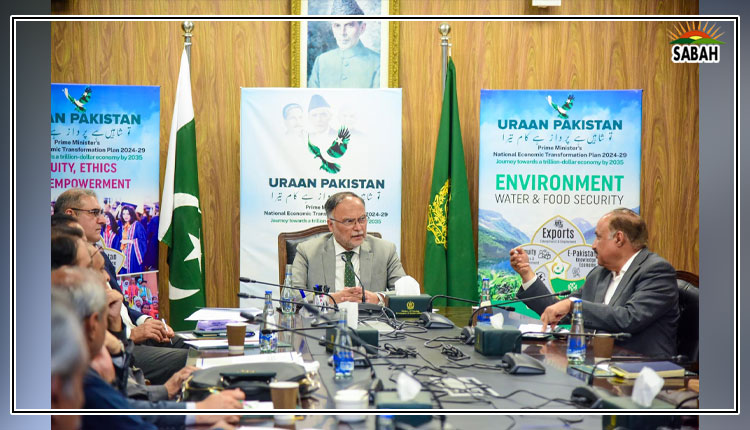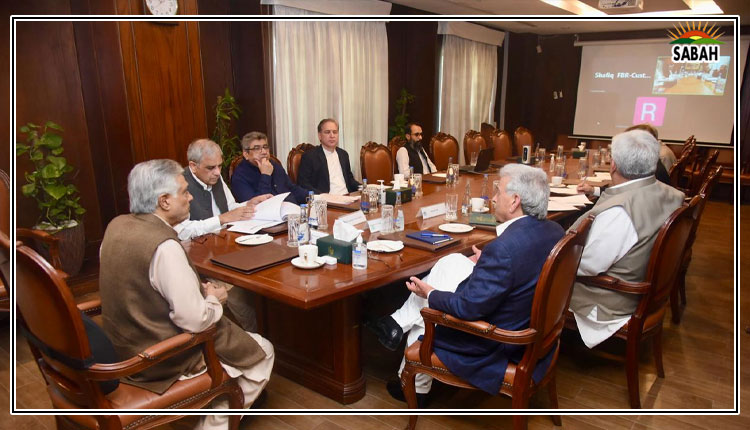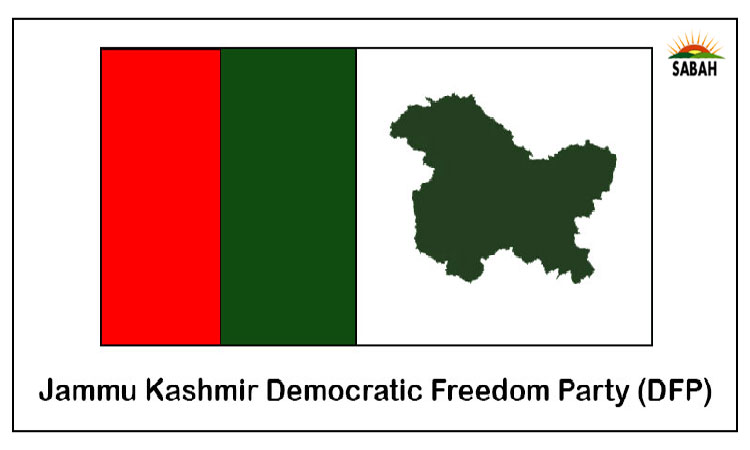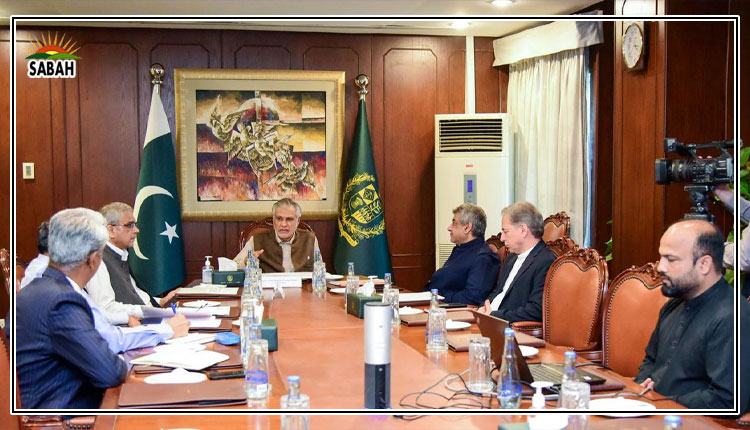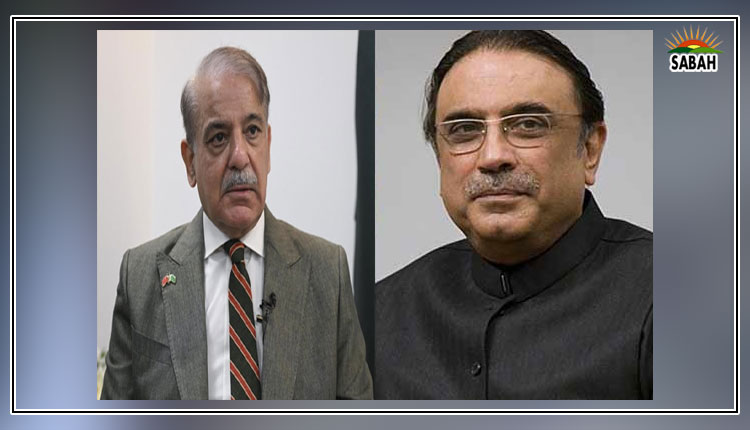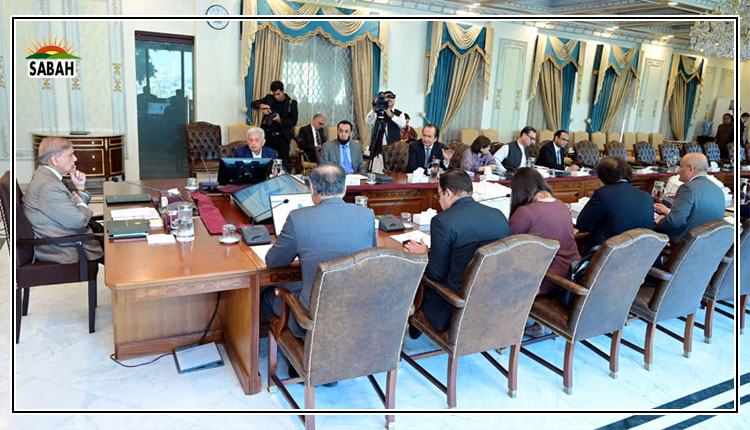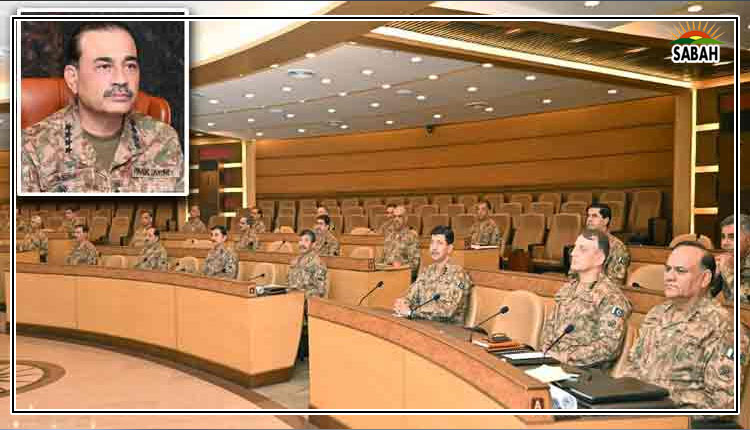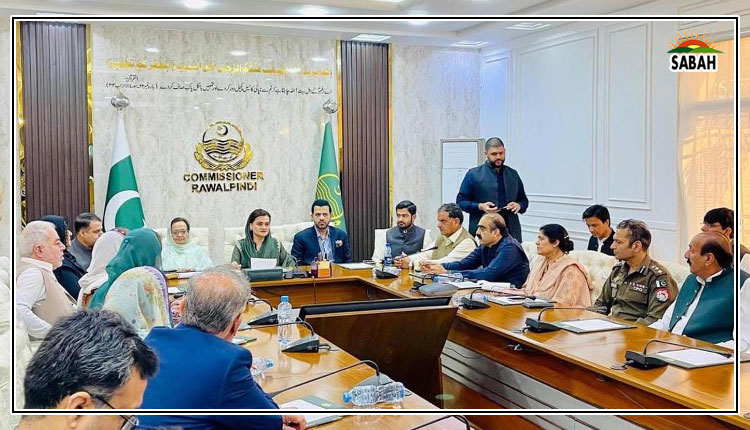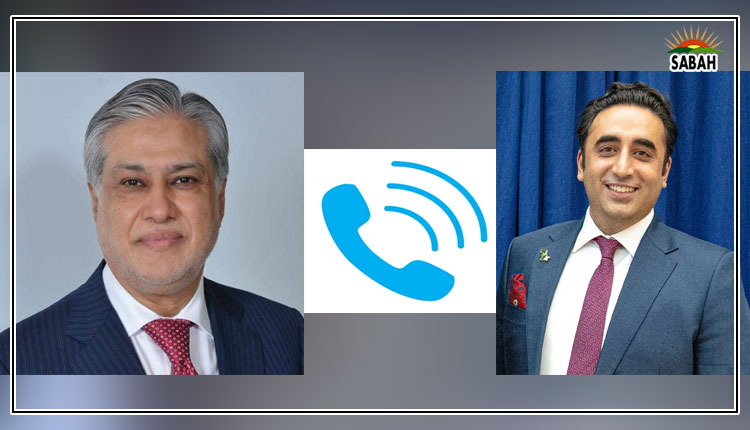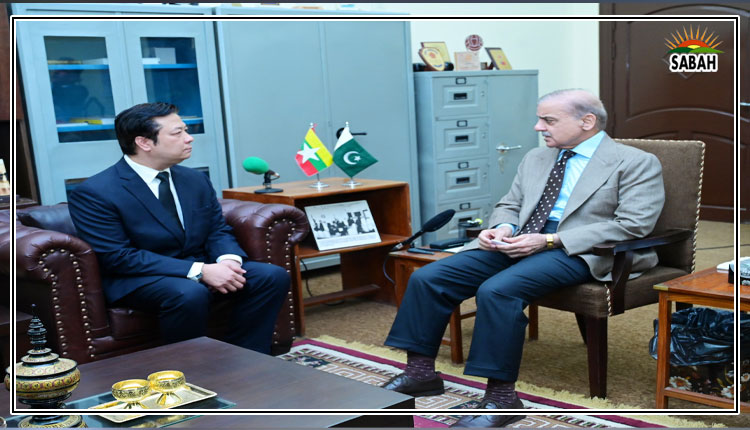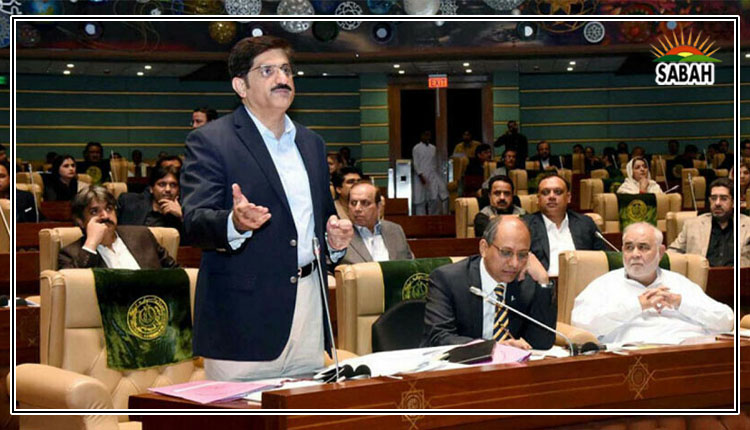Syed Murad Ali Shah unveils Rs2.2 trillion Sindh budget for Financial Year 2023-24 with focus on flood rehabilitation
KARACHI, June 10 (SABAH): Sindh Chief Minister Syed Murad Ali Shah presented a budget of Rs2.2 trillion for the Financial Year 2023-24 with a development outlay of Rs700.1 billion, which centres around the rehabilitation of flood-affected people and provides social protection to the poor people of the province.
The total revenue receipts of the provincial government were estimated at Rs2,209.785 billion, representing an increase of 31.56% from the previous financial year 2022-2023, against estimated expenditures of Rs2,247.581 billion, representing a deficit of Rs37.795 billion.
The chief minister also announced the much-awaited Rs10 billion for the Sindh Safe Cities Project (Phase-I), for Karachi with a substantial allocation of Rs4.5 billion for the year 2023-24.
The new project including the connectivity of Lyari-Gujjar Nala in Central for Rs1.5 billion, the construction of the Sea Wall and Road from Dolman Mall to China Port, Clifton for Rs1430 million, the construction of a 6-lane expressway way from the existing Jinnah Bridge along with Lyari Naddi to Hawksbay, including bridge crossing on main Hawkasbay road and a small bridge on navy maritime security jetty area, Keamari, for Rs1.8 billion, the construction of a 2+2 lane underpass at Karimabad District Central for Rs1.35 billion, and the establishment of campuses of public sector universities in Korangi, West, and Keamari for Rs4000 million.
Syed Murad Ali Shah presented his 12th budget as finance minister, seventh as the chief minister, and the fifth consecutive budget of his current concluding tenure on the floor of the provincial assembly.
The chief minister announced a 35% increase in the basic salary of employees of BPS-1 to 16 and a 30% increase in the salary of employees of BS-17 and above. He also proposed a 17.5% increase in pensions and a 35% increase in the minimum wage of Rs25,000 which would come up to approximately Rs35,550.
The other adhoc relief would be the same as has been announced by the federal government.
The estimated total receipts of the province include three revenue channels: Current Revenue Receipts estimated at Rs1,823.126 billion, Current Capital Receipts estimated at Rs36.133 billion, and Other Receipts estimated at Rs295.53 billion.
In addition to the revenue receipts, Carryover Cash Balance is estimated to be Rs45 billion and the net balance of the Public Accounts of the province is estimated to be Rs10 billion, with Rs5,585.66 billion in receipts and Rs5,575.66 billion in disbursements, for the Financial Year 2023-24.
Current Revenue Receipts include a total of Rs1,353.2 billion in federal transfers in the form of revenue assignment estimated at Rs1,225 billion, straight transfers estimated at Rs64.42 billion, and grants to offset losses of the abolition of OZT estimated at Rs33.74 billion.
In addition, the head of revenue receipts includes estimated provincial tax receipts of Rs202.9 billion, provincial sales tax on services of Rs235 billion, and provincial non-tax receipts of Rs32 billion.
Current Capital Receipts include local repayments/loans estimated to be Rs6.133 billion and bank borrowing estimated to be Rs30 billion.
Other receipts include Foreign Project Assistance (FPA) budgeted at Rs266.7 billion, other federal grants budgeted at Rs22.9 billion, and foreign grants budgeted at Rs5.92 billion.
The estimated expenditure of Rs2,247.58 billion includes a Current Revenue Expenditure of Rs1,411.2 billion, a Current Capital Expenditure of Rs136.26 billion, and a Development Expenditure of Rs700.1 billion.
The latter includes Provincial ADP excluding FPA of Rs380.5 billion, FPA of Rs266.7 billion, other federal grants of Rs22.91 billion, and district ADP of Rs30 billion.
Syed Murad Ali Shah also announced an allocation of Rs63.0 billion to ensure a consistent supply of subsidized wheat to mills and affordable wheat flour to the public. He further gave a budgetary provision of Rs16.9 billion for the Pro-Poor Social Protection and Economic Sustainability Program.
The chief minister said that his government has enhanced the budget for school education by 13.1% to Rs267.6 billion. He said that the government has also been successful in attracting and securing Chinese grants of Rs7.6 billion for the rehabilitation and reconstruction of 646 schools.
Moreover, 112 damaged schools would be rehabilitated on resilient and environmentally friendly fabricated structures in five districts for Rs3.01 billion under the Flood Restoration Programme and Sindh Development Through Enhanced Education Programme (DEEP).
Under Sindh Education & Literacy Department (SE&LD) portfolio, 46 new schemes related to the repair and rehabilitation of existing schools damaged by rain, have been included at an estimated cost of Rs4.41 billion, and 45 schemes have been dedicated to the construction/reconstruction of existing schools affected by the flood at cost of Rs4.49 billion.
Meanwhile, a new scheme titled “Programme for Flood Response Through Reconstruction Of Education Facilities in Sindh” in partnership with Japan International Cooperation Agency (JICA) has been proposed. The share of the Government of Sindh is Rs142.4 million has been proposed in ADP (2023-24) for districts such as Mirpurkhas, Khairpur, Badin, Shaheed Benazirabad, Sukkur, Ghotki and Dadu. Moreover, the share of JICA is estimated to be Rs1.42 billion.
The transport budget has witnessed an impressive growth rate of 167.8%, rising from Rs5 billion to Rs13.4 billion. Similarly, the allocation for energy has experienced a notable increase of 57.8%, reaching a total of Rs47.9 billion.
The government intends to establish modern terminals at Karachi, Thatta, Badin, and Miro Khan in the first phase. The construction of bus terminals at Thatta Raod and Miro Khan is under process.
The Bus Rapid Transit (BRT) Green Line project is being implemented at a cost of Rs2.36 billion. The corridor is 3.88 kilometres in length and will carry 50,000 passengers per day.
The BRT Red Line will be a state of the art third generation system with a development expenditure of Rs78.38 billion. The project is a zero subsidy project and 250 bio-hybrid buses will provide service to more than 350,000 passengers per day.
Additionally, the Sindh government is spending Rs2.91 billion to improve the drainage along the corridor and more than 25,000 trees will be planted in addition to the landscaping works worth Rs63.4 million along the corridor.
According to Syed Murad Ali Shah, Sindh has one of the largest irrigation systems in the country.
It faced colossal losses in the last rain and floods which now demands extra funding in the next financial year, therefore, a significant amount of Rs25.703 billion has been kept in budget estimates 2023-24.
It includes Rs900 million for silt clearance, Rs5.0 billion for overall repair and maintenance of the system, and Rs750 million for the Salinity Control and Reclamation Program (SCARP).
The Sindh Housing Project was immediately launched in targeted areas for the rehabilitation of flood-affected people.
As of May 2023, the provincial government received $230 million equivalent to Rs64.669 billion under the projects. The amount was being expended on relief and rehabilitation activities.
Other projects that support the people of Sindh in the flood-affected areas include the $500 million Flood Emergency Rehabilitation Project, the $500 million Floods Emergency Housing Reconstruction Project, the $292 million Water and Agriculture Transformation Project, and the $200 million Strengthening Social Protection Delivery System Project as well as the $200 million Integrated Health and Population Project.
Shah continued that the Sindh government prioritized the allocation of funds for law and order, and the interior department Rs143.568 billion for the next financial year suggesting a 15% increase from last year’s allocation of Rs124.87 billion.
He also announced Rs15.5 million each to the prison’s policy and management boards for strategic improvements and Rs463.414 million for strengthening the prison department’s technical capabilities.
Empowerment of Persons with Disabilities:
According to World Health Organisation, 15% of the world’s population are persons with disabilities. They are found to be socially and economically discriminated segments of our society.
The provincial government was “determined to extend support through imparting vocational education, IT skills and supplying assistive technology with artificial intelligence applications to empower them to contribute to the developmental process”.
For this cause, Shah announced a provision of Rs6.1 billion for the year 2023-24 against the budget of Rs 3.4 billion in the ongoing financial year 2022-23.
The Women Development and Empowerment department budget estimate for the upcoming financial year was proposed at Rs705.983 million against last year’s allocation of Rs644.125 million.
A provision of Rs500 million has been kept for the Benazir Women Agricultural Workers Program. This program will improve the agricultural output and living standards of rural women associated with the agricultural field.
The chief minister announced an Rs10.987 billion budget estimate for livestock and fisheries for the next year 2023-24. It included Rs150 million for the newly established Livestock Breeding Services Authority, Rs120 million for holding the Sindh Livestock Expo Event, and Rs1.88 billion for the implementation of the Accelerated Action Plan in the livestock sector for addressing stunting and malnutrition.
A provision of Rs2.78 billion was earmarked for non-development expenditure related to Forest and Wildlife against Rs2.45 billion in 2022-23. It includes Rs368 million for the conservancy and development of new forest nurseries.
Shah further said his government would be able to earn $200-220 million – equivalent to around Rs63 billion – of carbon credits over the next two decades for its efforts to expand mangrove forests.
CM Murad also announced an allocation of Rs63 billion to ensure a consistent supply of subsidised wheat to mills and affordable wheat flour to the public and a budgetary provision of Rs16.9 billion for the Poor Social Protection and Economic Sustainability Programme.
The chief minister said that the grant to local councils has been kept at Rs88 billion with an increase of 4.8%.


